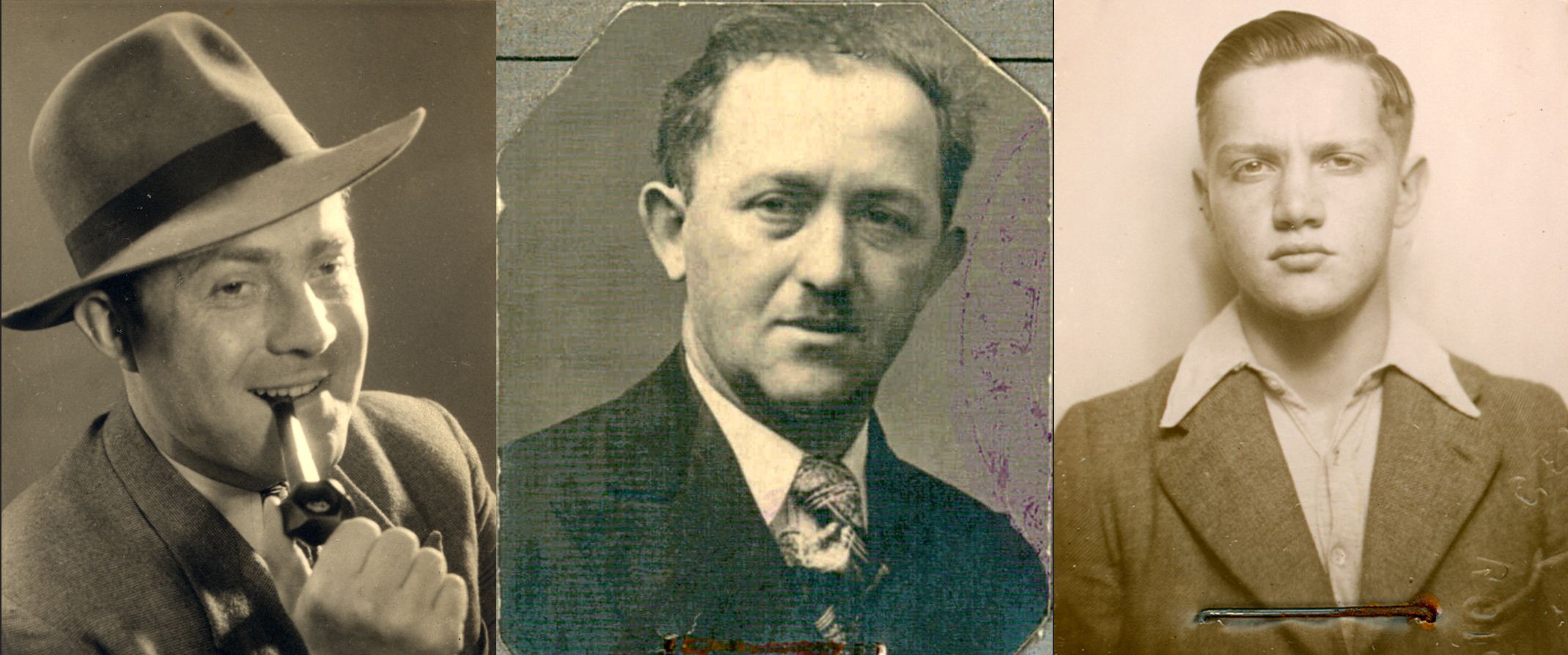
David Lachman, in 1949 | Berck Lachman, ca. 1929 | Michal Icchok Lachman, ca. 1940
David Lachman, a Polish Jew, came to Belgium in 1929 at the age of 6 with his father, Berck, his mother, Garna Kozak, and younger brother, Michal Icchok, who was 3 at the time. The family lived in Anderlecht where the father worked as a tailor. In 1938, at the age of 14, David, an apprentice-tailor, joined the Unified Socialist Young Guard in the fight against the extreme right. As a seasoned activist and resistance worker, he joined the nascent Brussels Partisan Brigade in 1942.
On 16 April 1942 he and other Brigade members set off a bomb aimed at a meeting of the Flemish SS in Le Cygne, a restaurant on the Grand Place in Brussels. Lachman’s experience was soon put to good use for the training of new recruits. Later he was sent off to Walloon Brabant to take charge of a group of Partisans, unfortunately many of the group’s members were arrested at Céroux-Mousty on 31 March 1943. After returning to the capital he took part in the raid of 4 May by the Brussels Partisans on the hospital of Tienen, where 8 wounded escapees from Transport 20 were being held. Sadly, six of these escapees ended up in a car driven by a man in the pay of the German police, and dropped them off at the Dossin Barracks.
On 19 April, Berck and Michal Icchok Lachman, father and brother of David, who had been arrested on 14 April were put on board Transport 20. Upon arrival at Auschwitz-Birkenau on 22 April the SS selected the sixteen year old David for slave labour with number 117,604. The boy did not survive. His father Berck, even though he was 53, was also selected and given number 117,605. He was sent first from Auschwitz to the Kommando at Monowitz and then to Jawisowitz. He took part in the death march of January 1945 to Buchenwald where he worked in the Dora Kommando. Afterwards he was moved to Dachau where he was liberated on 29 April. After a period hospitalization and convalescence he returned to Belgium on 14 June. In the meantime, David was still fighting with the Partisans and commanded a special brigade. He was eventually arrested in Brussels on 18 April 1944 and arrived at the Dossin Barracks on 21 April. Together with a group of fellow inmates he was put to work for a short while at the SS training camp in Schoten, about ten kilometres from Antwerp. On 19 May 1944 he was put on Transport 25 which took him to Birkenau where he was given number 2,701. Here he was reunited with his father. David stayed in the main camp until the death marches of January 1945, eventually ending up in
Mauthausen. As a worker in the Ebensee Kommando he participated in the uprising of 5 May when emaciated prisoners refused to appear at the morning call and routed the SS guards, just days before the arrival of the Americans. David Lachman returned to Belgium on 25 May.
